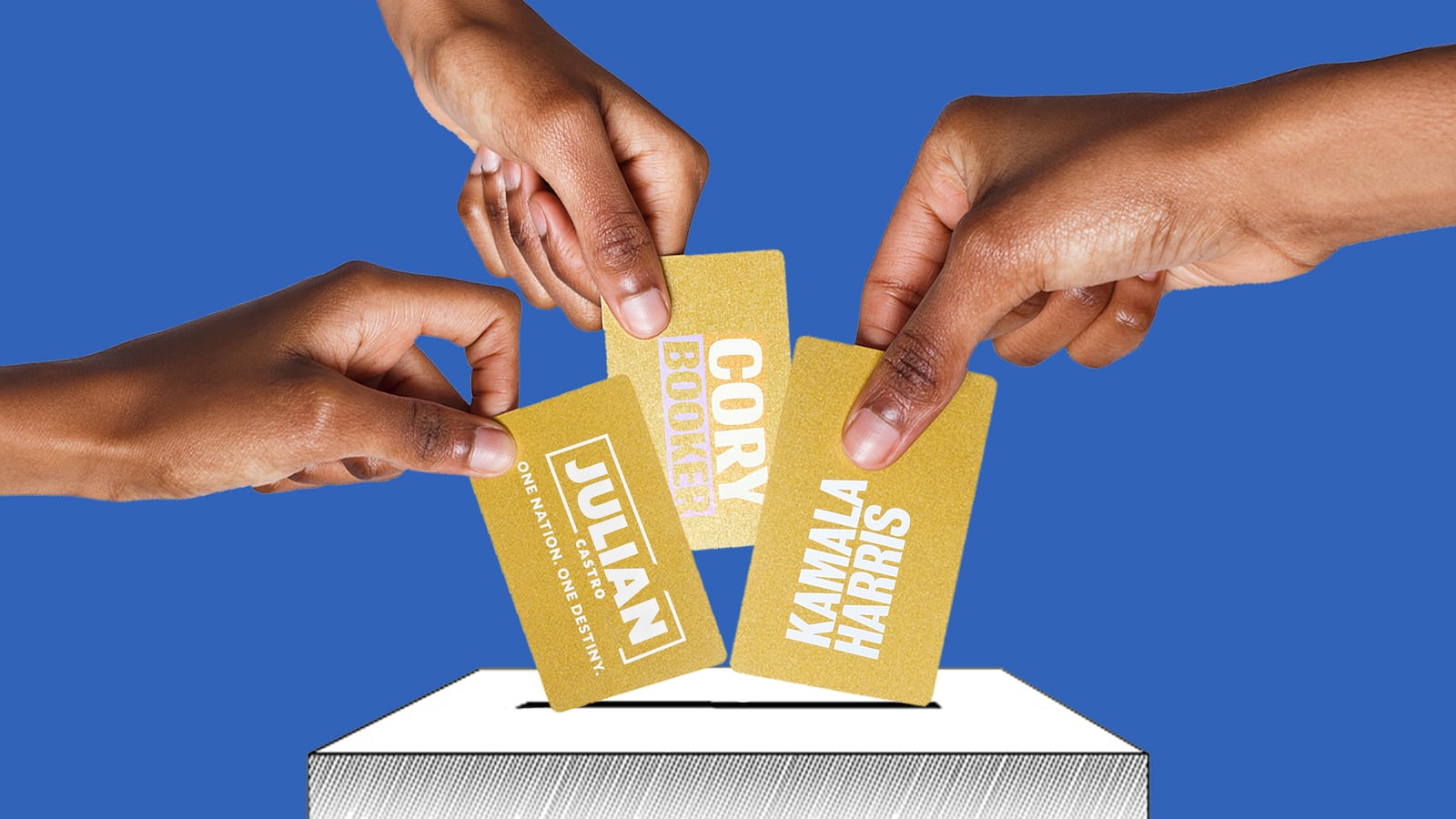As I watched the returns come in from South Carolina Saturday night, one idea dominated my thoughts. What if South Carolina had voted first, not fourth?
Who knows who would have won. But I will bet you this: Cory Booker and Kamala Harris would still be in this race, while Pete Buttigieg, who dropped out Sunday, and Amy Klobuchar, who exited Monday, would have been out of the race months ago.
From the beginning of the election cycle the Democrats celebrated their diverse field of candidates. But they actively hurt that diverse field by failing to change their lily-white nomination process. Starting the nomination process in Iowa and New Hampshire doomed the candidates and voters of color.
Why? It’s obvious. When you have two 90-percent white states going first, you’re giving a huge advantage to the white candidates. It’s as if the Democratic National Committee gave Corvettes to Buttigieg and Klobuchar and Yugos to Booker, Harris, and Julian Castro and said: “OK. Race.”
In early December, Castro came out against Iowa’s first-in-the-nation caucus role citing the state’s lack of diversity and arguing that the Democrats needed to instead focus on states that reflected the diversity of the party.
Less than a month after his comments, Castro was out of the race. Harris had already dropped out in early December, and Booker in mid-January.
Throughout much of their campaigns Castro, Harris, and Booker struggled with fundraising because Democratic donors and supporters questioned their ability to compete in Iowa and New Hampshire. Low fundraising contributed to low polling, and low polling made it harder for them to meet the necessary debate qualifications. These minority candidates were thus pushed out of the nomination process, and their “electability” questioned, because they struggled to excel in two states whose demographics bear no resemblance to the diversity of the Democratic electorate or the American public.
The nomination process’ imbalance toward white voters also created a bloated pool of white candidates who exist to compete over the same white voters but have almost no connection to voters of color.
Buttigieg had been the new darling of the Democratic Party, or some quarters of it anyway, and his fundraising had rivaled that of Sanders and Elizabeth Warren and surpassed Joe Biden’s. But his support among black voters had always been close to nonexistent. It was a forgone conclusion that he was going to get crushed in South Carolina. After finishing fourth in South Carolina, Buttigieg called it quits. His relative success with white voters meant nothing, and all it did was take away opportunities from minority candidates who had a better chance at appealing to more than just white voters.
Klobuchar’s campaign is essentially a lesser iteration of Buttigieg’s. She appealed only to white voters. Iowa and New Hampshire kept her relevant, but after a sixth place finish in South Carolina she obviously had no path to the nomination. And right on cue she dropped out the day after Buttigieg and is supporting Biden. Frankly, she never had a path to the nomination, but the imbalance of this process kept her in the race longer than more or equally viable candidates of color. Booker dropped out of the race because he never polled higher than 4 percent in Iowa, but Klobuchar nearly made it to Super Tuesday despite not being competitive in any of the primaries or caucuses.
This neglect of black voters by Democrats has allowed Biden to run a relatively easy campaign for their votes. Once Harris and Booker dropped out, no candidate presented a viable threat to Biden’s support in the black community. Sanders and billionaire Tom Steyer have tried hard to increase their support in the black community, but they obviously never stood a chance.
To Sanders’ credit he’s made a concerted effort to win black and Latino voters, but few anticipated that he would lose by nearly 30 percentage points in South Carolina. If South Carolina was first, Sanders would be a way less formidable candidate.
Biden, with all of his flaws, gaffes, and controversial decisions, has spent decades building relationships with the black community, and the crux of his campaign has been staunchly defending the presidency of Barack Obama. Black voters, especially older black voters, care more about community than policy. Biden knows this. He is a white man defending the legacy of America’s first black president, so no white candidate can match his connection to the black community.
But a black candidate definitely could. We saw this in 2008, when Barack Obama won South Carolina despite the Clintons having a similar, and possibly stronger, connection to the black community than Biden’s today. Back then Bill Clinton was America’s first “black” president. If still in the race, Harris and Booker would have at least challenged Biden for black votes, unlike the white candidates who still remain. Biden still might have won, but he would not have won with nearly 50 percent of the vote. And without Buttigieg, Steyer, and Klobuchar, Harris and Booker would probably be more competitive in the overly white states too.
The Democratic nomination process has been an absurd farce that elevates unelectable white candidates, pushes out candidates of color, and does not represent the demographics of the party or the country. South Carolina has shown America that this process needs to be more racially equitable.






